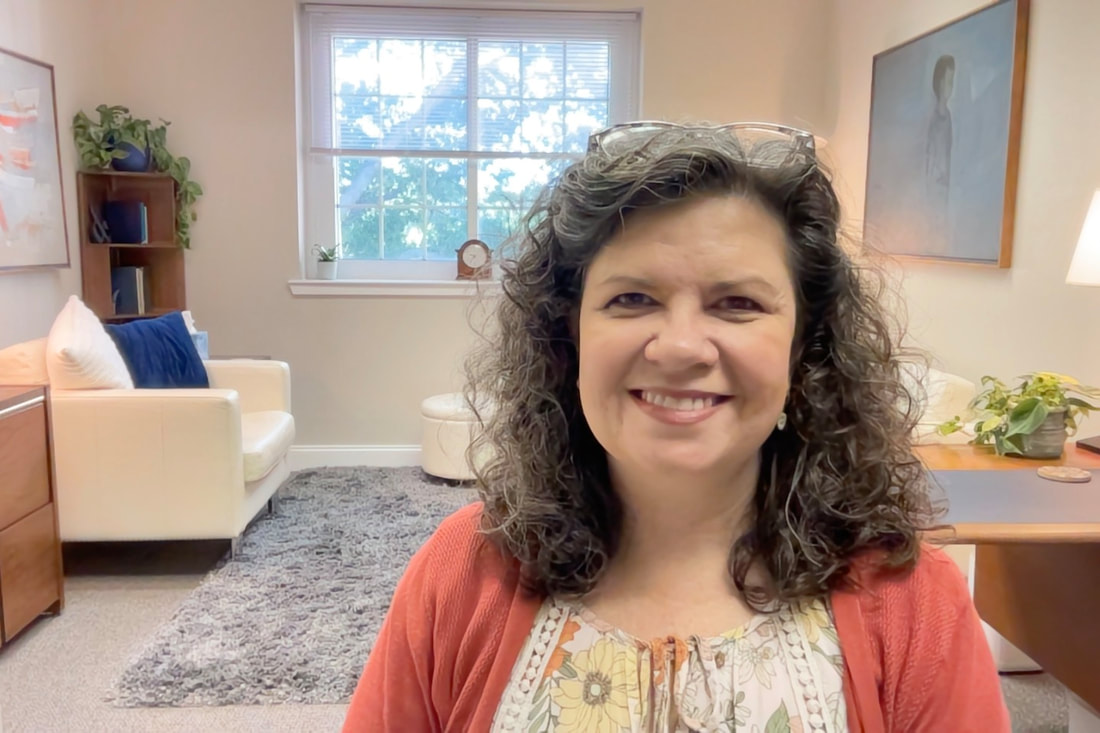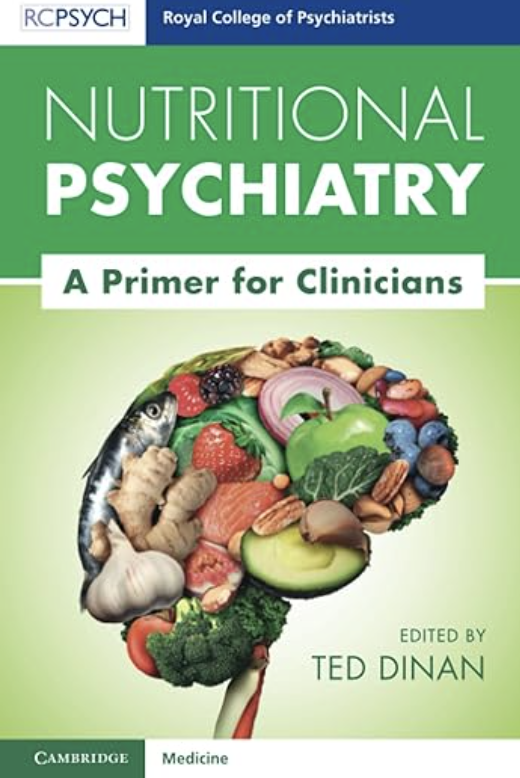|
This video, developed by the Trauma Foundation, gives a helpful overview of how trauma and chronic stress affects our nervous system and how those effects impact our health and well-being. The content is largely based on Dr. Stephen Porges research on Polyvagal Theory. You can learn more about Polyvagal theory here. Research has shown physical movement to be a powerful tool in alleviating symptoms of depression and anxiety, as well as enhancing our overall sense of well-being. As we enter the sunshine and blue skies of Hot Texan Summer (TM), it is helpful to remember the beneficial effects of movement on our mental health and the importance of incorporating physical activity into our daily lives.
Over the years, a growing body of research has shed light on the positive impact of physical activity on individuals experiencing depression and anxiety. These studies highlight several key findings: Release of Mood-Boosting Chemicals. Engaging in regular physical activity triggers the release of endorphins, neurotransmitters that act as natural painkillers and mood elevators. Endorphins induce feelings of happiness and well-being, counteracting negative emotions. This chemical boost can significantly improve mood and reduce symptoms of anxiety. Neurogenesis and Neuroplasticity. Movement has been shown to promote neurogenesis (the formation of new neurons) and enhance neuroplasticity (the brain's ability to reorganize and adapt). These processes play a vital role in improving cognitive function, memory, and learning abilities. By stimulating the growth and connectivity of brain cells, physical activity helps create a healthier neural network that supports mental well-being. Studies indicate that regular exercise may even significantly reduce the risk of developing dementia. Stress Reduction and Anxiety Management. Movement acts as a natural stress reliever by reducing the levels of stress hormones such as cortisol and promoting relaxation. Regular activity can also help manage anxiety symptoms, which often coexist with depression. Engaging in activities like walking, jogging, yoga, or swimming can provide a much-needed respite from daily stressors, promote a sense of calm and mental clarity, and improve sleep. Social Interaction and Support. Participating in group activities or team sports provides an opportunity for social interaction and support. Engaging in activity with others can foster a sense of belonging and community, creating a supportive environment that combats loneliness and enhances our sense of well-being. Physical activity can be a powerful a complementary tool alongside professional treatment for depression and anxiety. A recent meta-analysis published in JAMA Psychiatry, found that relatively small doses of even moderate physical activity (2 hours per week) were associated with substantially lower risks of depression. (Dr. Roger Seheult examines this and another recent study exploring depressive symptoms and sedentary behavior in adolescence in the video linked below.)  Photo by Christian Bowen on Unsplash Physical activity can be a powerful a complementary tool alongside professional treatment for depression and anxiety. A recent meta-analysis published in JAMA Psychiatry, found that relatively small doses of even moderate physical activity (just 2 total hours per week) were associated with substantially lower risks of depression. (Dr. Roger Seheult examines this and another recent study exploring depressive symptoms and sedentary behavior in adolescence in the video linked below.) If you are looking to enjoy these benefits by adding more movement into your life, here are some helpful tips: Find or Rediscover the Joy of Movement. Experiment with different forms of movement until you find activities that you enjoy. Whether it's walking through the neighborhood, learning a TikTok dance, hiking with friends, hula-hooping, kayaking, or playing pickleball, choosing activities you genuinely enjoy will increase the likelihood of incorporating them into your regular routine. Seek Support and Connection. Consider involving a friend or family member, or joining a club, exercise group or class to provide support and accountability. Sharing activity with others can make it more enjoyable, which will help you want to return to it regularly. Movement can be a powerful ally in supporting our mental health and overall well-being. By engaging in physical activity, we tap into natural mood-boosting chemicals, promote brain health, and cultivate social connections. Embracing joyful movement as part of our daily life empowers us to take an active role in our mental health, helping us on the path towards a healthier, happier life. Now, please excuse me as I take my not-so-stupid walk. (I hope to see you out there.) As the number of cases of COVID-19 increase, so does our collective anxiety. It can be difficult to know what tomorrow, next week, or next month will bring. This lack of expectations and being unable to plan can heighten anxiety. Routines we may have worked hard to build and which support our work-life balance and mental health are thrown off. And many of us find ourselves isolated from our usual social supports. In the video below, clinical psychologist Dr. Alli Mattu addresses important coping skills for working from home, social distancing without feeling isolated, and managing information related to the COVID-19 public health crisis without feeling overwhelmed. The following additional resources can help individuals and communities navigate this stressful time. Remember, we're all in this together. CDC: COVID-19 Resources Latest updates, tips and resources by the US Centers for Disease Control. Living With Mental Illness During COVID-19 Outbreak– Preparing For Your Wellness This webpage provides information and wellness tips for individuals living with mental health conditions during the COVID-19 outbreak. Mental health and wellness during a public health crisis Dr. LaGenia Bailey, a former DBSA board member, discusses tips on how to stay well during this public health crisis. In this podcast, she addresses the benefits of mindfulness practice, lifestyle habits, and ways to stay connected with others to avoid isolation. COVID-19 Mental Health Support Line: 833-986-1919 Texas Health and Human Services has launched a 24/7 statewide mental health support line to help Texans experiencing anxiety, stress or emotional challenges due to the COVID-19 pandemic. People can call the Statewide COVID-19 Mental Health Support Line 24 hours a day, 7 days a week toll-free at 833-986-1919. Operated by the Harris Center for Mental Health and IDD, the support line offers trauma-informed support and psychological first aid to those experiencing stress and anxiety related to COVID-19. Seven Crucial Research Findings that can Help People Deal with COVID-19 Psychological research on past crises can help people cope with the daily — sometimes hourly — news flashes about the coronavirus. How to Transition to Seeing Your Therapist Online Continue the work of therapy even from a distance. (And yes, Dr. Novinski offers sessions via Telehealth.) Psychologists’ Advice for Newly Remote Workers As employers close offices to slow the spread of COVID-19, here’s advice from I/O psychologists on how both managers and employees can work more effectively during this time. Dial 2-1-1 If you need assistance finding food, paying for housing bills, accessing free childcare, or other essential services, visit 211.org or dial 211 to speak to someone who can help. Run by the United Way. COVID-19 Ancillary Costs The HealthWell Foundation announced a COVID-19 Fund that provides up to $250 in assistance with ancillary costs associated with COVID-19. Grants awarded through the fund will provide reimbursement assistance to at risk or quarantined individuals for delivered food, medication, telehealth copays and transportation costs associated with COVID-19. Care for your Coronavirus Anxiety Staying Grounded Meditations and Calming Exercises National Domestic Violence Hotline For any victims and survivors who need support, call 1-800-799-7233 or 1-800-799-7233 for TTY, or if you’re unable to speak safely, you can log onto thehotline.org or text LOVEIS to 22522. Talking to Kids about the Coronavirus The Parent Guide to Resilience Yale University's The Science of Well-Being Yale's most popular class is now free online via Coursera. The course focuses on how to increase happiness and productivity in your everyday life. University of Pennsylvania: Positive Psychology Resilience Skills I am amassing quite a collection of therapy memes. Who knew this would be a thing? My favorite part of this trend is that most of the images you see above are screenshots sent to me by patients. I love that we are able to share a sense of humor and laugh together. I say this as an inroad to breaking down some of the anxiety around entering therapy. Especially if you are entering therapy for the first time, that anxiety typically occurs in the face of the unknown. What will therapy be like? What can I expect? Will I have to lie down on a couch? Will my therapist say "tell me about your mother?" Will my therapist just silently stare at me? Colorado therapist Kelsey Shane says of therapy: You may cry, you'll probably laugh, you'll definitely grow! Therapy looks a bit different for each individual, and for each individual therapist. I do have a couch, but it's really more of a love seat. Most people are comfy but do not actually lie down. Sometimes people come to therapy for help in dealing with a very specific situation, for example, coping with a loss, making decisions about moving forward during a time of transition, or managing anxiety related to social situations. Others seek therapy to understand and shift long-standing problematic behavior or relationship patterns. Sometimes we do in fact talk about mom. Sometimes we game-plan how to resolve conflict at work or at home. Sometimes we practice mindfulness and specific breathing exercises to reduce the frequency and severity of panic attacks. Sometimes we unpack puzzling dreams. Sometimes we draw connections to books and films (our cultural mythology). Back in the day, I knew a perhaps surprising number of my patients' Hogwarts houses, and now I understand how others relate their own origin stories or redemption arcs to characters in the MCU. We do sometimes cry, we often laugh, and I am privileged to witness growth on a daily basis. If you have more questions or would like to learn a bit more about the process of therapy, you might enjoy the video below by psychologist, Dr. Ali Mattu in which he answers commonly Googled questions about therapy. Facebook executive, Sheryl Sandberg, is an enormously successful technology executive (named one of the 100 most influential people in the world by Time magazine in 2012), author and speaker. Over the past few weeks, she has been making the rounds on day and nighttime talk-shows promoting something much closer to her own heart, her new book, Option B: Facing adversity, building resilience and finding joy. The book, written with Sheryl's friend, psychologist Adam Grant, is at once a deeply personal reflection on Sheryl's sudden loss of her husband Dave to heart failure at age 47, and inspiring call to find meaning, purpose, and develop resilience in the face of adversity. As Sandberg writes, we are not born with a set amount of resilience, after which small and large challenges threaten to overwhelm us. But rather, resilience is like a muscle, that can be strengthened and developed throughout our lives. Sandberg and Grant worked together to write the book and to launch Option B, an organization with the mission to bring people together to support one another and share resources from experts on building resilience. OptionB.Org is dedicated to helping you build resilience in the face of adversity—and giving you the tools to help your family, friends, and community build resilience too. Here, you can read and share personal stories, join groups for solidarity and support, and find information from experts. Option B, the book and the organization, promise to be excellent resources for those coping with loss and adversity, and all those searching for meaning and joy. Here you can read excerpts or listen to the full recent interview on NPR in which Sheryl discusses her new book and advice on how to help someone who is grieving. Below you will find the full video of Sheryl's moving 2016 commencement address at UC Berkeley in which she discusses her own grief and advice on developing a spirit of gratitude and resilience. Heads Together is a UK campaign, spearheaded by the Duke and Duchess of Cambridge and Prince Harry to end stigma around mental health. This week the campaign released a video of the Duke, Duchess and Prince discussing their support of the mental health initiative. The Heads Together campaign has partnered with this weekend's London Marathon to help raise awareness and encourage people to speak up about and prioritize their mental health (all the runners will be given Heads Together headbands, modeled by the Royal Family above). “Since we launched Heads Together last May, we have seen time and time again that shattering stigma on mental health starts with simple conversations. When you realise that mental health problems affect your friends, neighbours, children and spouses, the walls of judgement and prejudice around these issues begin to fall. And we all know that you cannot resolve a mental health issue by staying silent." Here in the US, the OK to Say campaign has been working to encourage people to talk openly about mental health. So often people do not ask for or seek out the help that they need because of stigma. Sharing our stories and working as a community to encourage one another and share resources can improve and save lives.
If you are interested in continuing this conversation and showing your support, consider joining the National Alliance on Mental Illness (NAMI) annual Dallas NAMI Walks 5k coming up in on May 13.
As Spring makes its slow but steady way to us, it calls to mind the newness and oldness of things. New leaves on trees, new buds blooming in gardens. There is a difference, though, between the buds freshly planted in gardens and roadside parks, and the re-emergence of perennials or blooms on trees that have come to be old friends. New-new, and old-new. Some of these new-new flora are placed and planted at the moment of perfection, at the height of their bloom. Then, too, they are whisked away at the first sign of fading to be replaced with the fresh and the new. This process, indeed this industry, grows in line with our consumer culture which seems to forever chase the new, the next. This is a very Western approach to our surroundings, and to ourselves, We value the young, the new, and we relentlessly pursue perfection. When something is broken or imperfect, we find it useless and ugly. Rather than refurbish or repair, we are quick to replace. Psychically, this takes its toll. If we find ourselves imperfect or broken, we feel unworthy, unlovable, ashamed. We attempt to hide our faults and imperfection from one another and often from ourselves.  Photo credit David Pike Photo credit David Pike
The Eastern philosophy of wabi-sabi. can help us see and relate to ourselves in a different way. This philosophy cherishes the simple, unpretentious, and aged. The Eastern craft of kintsugi takes this idea from philosophy into art form. Literally golden (kin) joinery (sugi), this practice involves the careful repair of broken ceramic pieces with a combination of resin mixed with gold. The result is that the fractures in a piece are highlighted by the gold, making the object more beautiful than it was before. The object (vase, teapot, bowl) that was valued is understood to be worth the care and love expended to repair it, and is in fact more beautiful for having survived.
The fresh buds on a cherry tree are to be cherished not just for their beauty in the moment, but for visually reminding us that the tree, our old friend, has survived the winter. Similarly, the laugh-lines on a grandmother's face are a sign of life well loved and well lived. We do a disservice when we try to hide our brokenness, our past, or our flaws, or pretend they never happened. These were (and are) pivotal moments in our lives that, when looked upon with care, can begin great transformation in our lives. With the holidays fast approaching, this can be a good time to pause and reflect on why this season of thanksgiving and joy can often be so stressful. Do you find yourself anxiously working to anticipate every detail or need in attempt to orchestrate the perfect holiday, the perfect family get together, the perfect scrapbook moment? Or are you pulled by the gnawing suspicion that no matter how hard you try, how badly you want this year to be different, that things will go wrong. Again. Just as they have so many times before? When you find yourself pulled between these two intense emotional states and expectations, it can be easy to blame yourself for what has or what will go wrong, to feel or anticipate feeling blamed by others, or to blame others for behaving in what feels like a predictable destructive pattern. Author researcher and storyteller Brené Brown offers wise words on the underlying meaning and fallout of this tendency to rush to blame. By blaming ourselves or others we attempt to regain a sense of control, but we also lose out on opportunities and relationships in the process. Today is National Psychotherapy Day, a day to reduce stigma and draw awareness to the effectiveness of therapy.
"People who support psychotherapy – therapists, clients, academics, policymakers, or any other interested party – are encouraged to talk about their own experiences with therapy, contribute to low-fee and community mental health clinics, share therapy effectiveness research, and wear turquoise to show support and start conversations." If you haven't seen the Moments of Meaning series, they are definitely worth your while. Dr. Ryan Howes, founder of National Psychotherapy Day, and his team released this video series featuring therapists speaking from the heart about the transformations that take place between therapist and patient in psychotherapy. The whole series is well done and provides an insightful and moving glimpse into real therapy sessions (all stories are shared with the permission of individual patients, and altering identifying information). You can read more about National Psychotherapy Day here, and find the Moments of Meaning video series here.
Dr. Brené Brown is a professor at the University of Houston Graduate College of Social Work, and a researcher who has spent years studying, writing, and speaking about vulnerability, courage, worthiness, and shame. The video below of her 2010 TEDx Houston talk, The Power of Vulnerability, is one of the top five most viewed TED talks in the world, with over 19 million viewers. If you haven't seen it, or haven't seen it lately, it may be the most inspiring and best spent 20 minutes of your day.
Brené's latest book, Rising Strong, is scheduled for release this week. In describing Rising Strong, she writes, “If we are brave enough, often enough, we will fall. This is a book about what it takes to get back up.”
|
About the AuthorClinical psychologist Dr. Kristy Novinski contributes insights, book and film reviews, discussions of pop culture, and exploration of news and research in the field of psychology. What I'm Reading
Categories
All
|
Las Colinas Psychological Services, PLLC |
© 2023 Las Colinas Psychological Services, PLLC. All rights reserved.
|

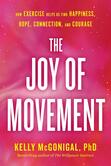
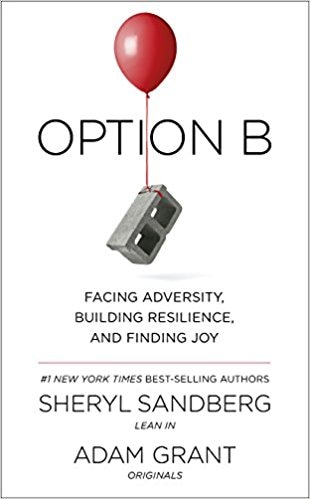

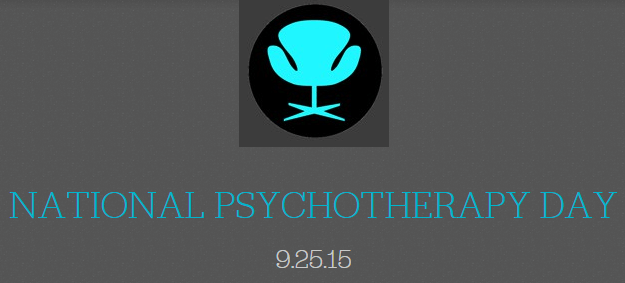
 RSS Feed
RSS Feed
